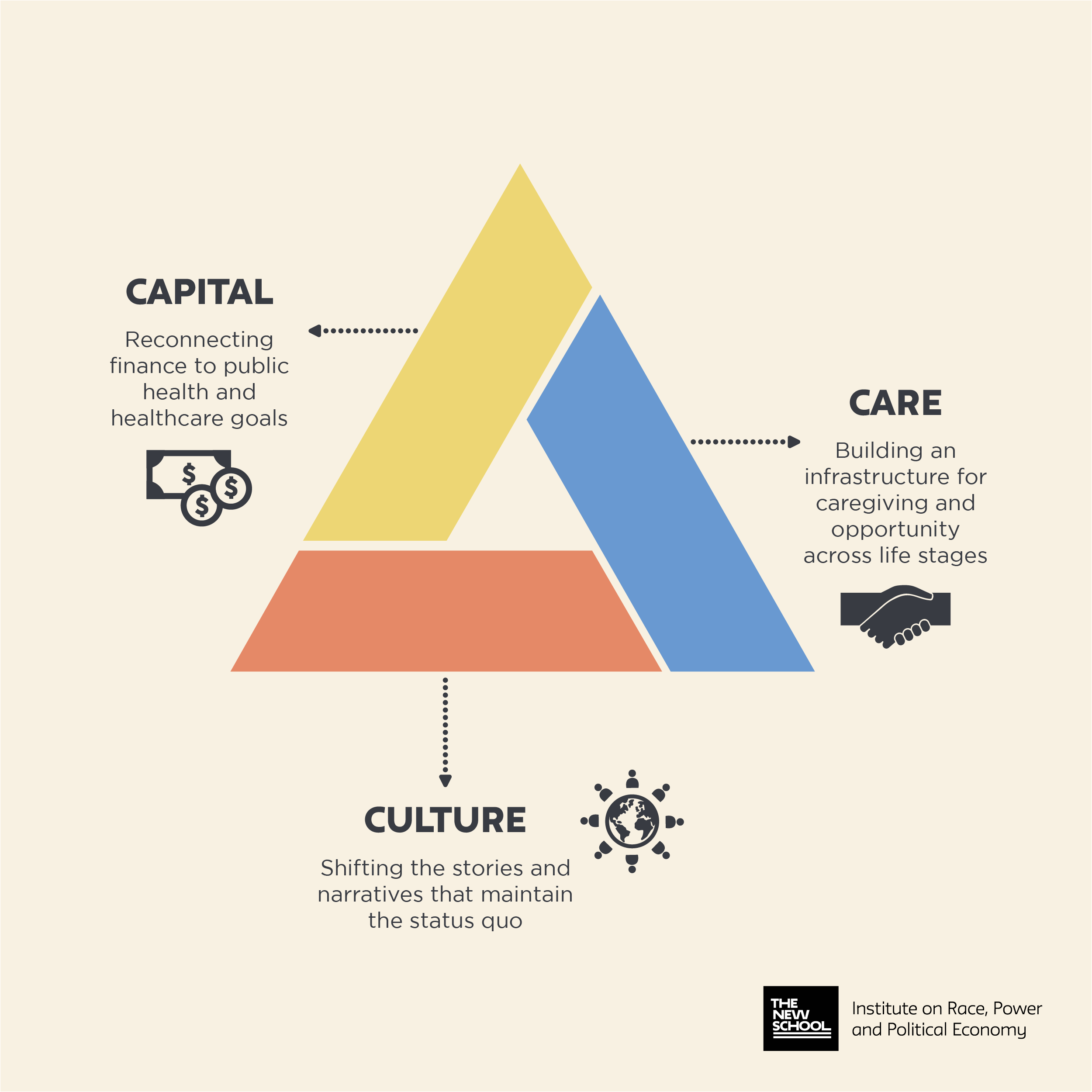Health and Political Economy Project
The Health and Political Economy Project (HPEP) aims to build a just and inclusive economy that enables all people to experience health and dignity.
As a field catalyst, HPEP works to shift paradigms and build power to move from the existing economic status quo to one that prioritizes investment in the health of people and the environments in which they live:
- Paradigm-shifting seeds and socializes new ideas through scholarship and policy ideation.
- Power-building translates paradigm into real-world adoption by working alongside organizers, health workers, practitioners, and public servants to realize this vision.
Why HPEP?
The U.S. is experiencing a decades-long population health crisis, with stagnating life expectancy and preventable suffering and premature death. These unacceptable tragedies arise in part from an outdated economic paradigm that privileges free market thinking and individualistic cultural narratives and are borne unequally across race and ethnicity.
Rather than take this system as fixed, we ask: what is the purpose of our economy? We view the economy as iteratively intertwined with politics and identity group stratification, especially by identities such as race, gender, and national origin. We believe we can craft the iterative relationship between these, known as political economy, to prioritize the health, dignity, and wellbeing of people and society.
HPEP’s founding premise is that bold strategy and collaborative action can reorient our political economy towards health. We take inspiration from a wider movement to move beyond neoliberalism in arenas like climate and law. We aim to change the status quo in health and reorient how policymakers, practitioners, and patients alike see and act on the connections between our political economy and our health.
Our Areas of Work

We focus our action on three interconnected areas: capital, care and culture.
Capital involves ending the growing financialization of health and prioritizing long-term investments in health that affirmatively include marginalized groups.
Within our capital portfolio, HPEP is currently undertaking and exploring initiatives to tackle corporate power and build public capacity for health and to invest in people and the environments in which they live.
Care involves strengthening and valuing care as essential infrastructure for health and wellbeing across each person’s life and across our communities.
Within our care portfolio, HPEP is currently undertaking and exploring initiatives to champion worker dignity and to build power alongside patients and health practitioners.
Culture involves changing hearts and minds about the many links between health and our economy, using the power of stories to shift attitudes and inspire new narratives to displace prevailing economic thinking.
Within our culture portfolio, HPEP is currently undertaking and exploring initiatives to create both popular and practitioner-focused educational resources and to build the capabilities to devise, test, and hone new narratives.
Our Team
HPEP is co-chaired by Professor Darrick Hamilton (founding Director, Institute for Race, Power, and Political Economy) and Dr. Dave A. Chokshi (Sternberg Family Professor of Leadership at City College of New York and former NYC Health Commissioner), with Dr. Victor Roy as Director (physician, sociologist, and Assistant Professor at University of Pennsylvania) and Mara Heneghan as Associate Director (policy strategist, formerly at Cook County President’s and Chicago Mayor's office).
HPEP is purposefully housed at the Institute on Race, Power and Political Economy at The New School, given how foundational racial equity and mobilizing political power are to creating a more just economy and health system.
Get in Touch
Feel free to email hpepinfo@newschool.edu

